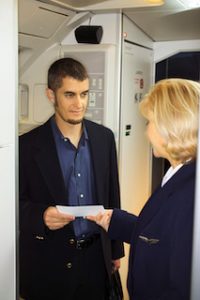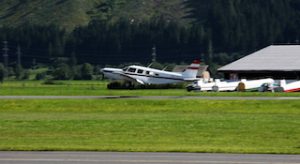Job Placement After Flight Attendants Training
 Pursuing a career as a flight attendant is an exciting opportunity that comes with its own set of challenges and rewards. As the aviation industry continues to grow, so does the demand for well-trained flight attendants. However, completing flight attendants training is only one part of the equation. Securing employment in this competitive field requires additional support. Many reputable training programs offer job placement services and career counseling to assist graduates in finding employment with airlines. This article explores the importance of these resources, how to evaluate training programs, and tips for successfully entering the aviation workforce.
Pursuing a career as a flight attendant is an exciting opportunity that comes with its own set of challenges and rewards. As the aviation industry continues to grow, so does the demand for well-trained flight attendants. However, completing flight attendants training is only one part of the equation. Securing employment in this competitive field requires additional support. Many reputable training programs offer job placement services and career counseling to assist graduates in finding employment with airlines. This article explores the importance of these resources, how to evaluate training programs, and tips for successfully entering the aviation workforce.
Flight attendants training
Flight attendants training encompasses a wide range of topics designed to prepare aspiring professionals for the unique demands of the job. This training typically includes:
- Safety protocols: Understanding aviation regulations and emergency procedures.
- Customer service skills: Developing strong interpersonal and communication abilities.
- Medical training: Learning first aid, CPR, and how to handle medical emergencies on board.
- Cultural sensitivity: Gaining awareness of diverse cultures and effective communication strategies with international passengers.
While acquiring these essential skills is crucial, the ability to find a job after training is equally important. This is where job placement services come into play.
Importance of job placement services
Job placement services are resources provided by many flight attendant training programs to assist graduates in finding employment. These services can significantly enhance a graduate’s chances of securing a position in the competitive aviation industry. Here’s why these services are essential:
1) Industry connections
Reputable training programs often have established relationships with airlines and other aviation organisations. These connections can lead to job openings that may not be publicly advertised. Schools with strong industry ties can also provide insights into what airlines are looking for in candidates, helping students tailor their applications accordingly.
2) Resume and interview preparation
Job placement services typically include career counselling that focuses on resume building and interview preparation. Professional guidance can help graduates present themselves effectively to potential employers. Common services include:
-
- Resume workshops: Tailoring resumes to highlight relevant skills and training.
- Mock interviews: Practicing interview techniques in a supportive environment, receiving feedback to improve performance.
- Networking events: Connecting students with industry professionals, allowing them to build valuable relationships.
3) Understanding the job market
Flight attendants training programs often have a pulse on the job market, allowing them to provide graduates with up-to-date information on hiring trends and employment opportunities. Career counsellors can guide students on which airlines are actively hiring and what qualifications are currently in demand.
4) Ongoing support
Some training programs offer ongoing support even after graduation. This may include access to job boards, alumni networks, and resources for continued professional development. Having a support system can significantly ease the transition from training to employment.
Evaluating flight Attendants training programs
When researching flight attendants training programs, it’s crucial to assess their job placement services and overall effectiveness. Here are some factors to consider:
- Success rate of graduates: The most critical indicators of a program’s effectiveness is its graduate success rate. Investigate how many graduates secure jobs within a specific time frame after completing the training. Many reputable schools will publish this data, but you can also seek testimonials from former students.
- Industry partnerships: Look for training programs that have partnerships with airlines and aviation organisations. Schools that are well-connected within the industry are more likely to provide valuable job placement resources and access to exclusive job openings.
- Comprehensive career services: Evaluate the range of career services offered by the training program. Programs that provide extensive support—such as resume workshops, interview preparation, and networking opportunities—are more likely to help graduates secure employment.
- Alumni network: An active alumni network can be a significant asset for new graduates. Alumni who work in the industry can offer mentorship, job leads, and valuable advice. Look for programs that facilitate connections between current students and alumni.
- Reviews and testimonials: Research online reviews and testimonials from former students. Positive feedback regarding job placement services and overall training quality can be an indicator of a reputable program. Platforms like LinkedIn, Google Reviews, and educational forums can provide insights into the experiences of graduates.
Preparing for the job market after flight attendants training
Completing flight attendants training is the beginning. Here are some tips for effectively entering the job market:
- Network actively: Networking is a critical component of finding a job in the aviation industry. Attend industry events, workshops, and career fairs to meet professionals and fellow job seekers. Use platforms like LinkedIn to connect with industry insiders, and don’t hesitate to reach out to alumni from your training program.
- Tailor your application: Customise your resume and cover letter for each job application. Highlight relevant skills gained during your training and any specific experiences that align with the airline’s values or requirements. Personalizing your application demonstrates genuine interest and effort.
- Prepare for interviews: Practice makes perfect when it comes to interviews. Utilize the mock interview opportunities provided by your training program. Research common interview questions for flight attendants and prepare thoughtful responses. Being well-prepared can help you stand out in a competitive candidate pool.
- Stay updated on industry trends: The aviation industry is continuously evolving, and staying informed about trends, news, and challenges can give you an edge. Subscribe to aviation news outlets, follow industry leaders on social media, and engage in online forums to enhance your knowledge and discuss current events with peers.
- Be open to opportunities: While it is natural to have preferences regarding which airlines you wish to work for, being open to various opportunities can increase your chances of employment. Consider applying to regional airlines or less well-known carriers to gain experience and build your resume.
Role of continuous learning and development
The journey doesn’t end once you secure a position as a flight attendant. The aviation industry values continuous learning and development. Here’s how to remain competitive:
- Ongoing training: Many airlines provide additional training programs for their flight attendants, focusing on areas such as customer service, safety procedures, and cultural awareness. Participating in these programs can enhance your skill set and improve job performance.
- Pursue certifications: Consider pursuing additional certifications related to aviation or customer service. These can bolster your resume and demonstrate a commitment to professional development. Certifications in first aid, CPR, or specialised customer service training can be particularly beneficial.
- Seek feedback: Once you begin working as a flight attendant, actively seek feedback from supervisors and peers. Constructive criticism can help you identify areas for improvement and ensure you provide the best possible service to passengers.
- Engage with colleagues: Building relationships with your colleagues can lead to valuable exchanges of knowledge and experiences. Colleagues can offer insights into best practices and help you navigate challenges faced on the job.
Be an opportunist
In conclusion, completing flight attendants training is an essential step toward a rewarding career in aviation. However, securing a position with an airline requires additional support, which is where job placement services and career counseling come into play. These resources can significantly enhance your chances of finding employment, providing invaluable connections, preparation, and ongoing support.
When researching flight attendants training programs, focus on their job placement success rates, industry partnerships, and the comprehensive nature of their career services. By taking advantage of these resources and preparing effectively for the job market, you can position yourself for success in this exciting field.
As you embark on your journey toward becoming a flight attendant, remember that the right training and support can make all the difference. With dedication and the right tools, you can take to the skies and embark on a fulfilling career, ensuring the safety and satisfaction of passengers around the world. Your adventure in aviation begins with informed choices and a commitment to excellence.










